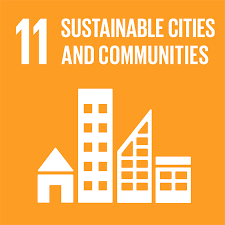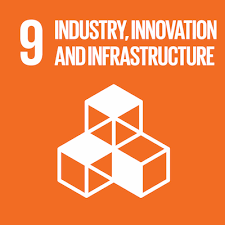The Truth Behind Corruption
- Anesu Mugodi

- Mar 2, 2021
- 4 min read
Updated: Mar 10, 2021
The following topic looks at the following UN Sustainable Goals:
Robert Mugabe, Idi Amin, Jacob Zuma….
These are some of the names that come to mind when we speak about corruption in Africa, however, they are not the only ones. Across the African continent, corruption leaves a trail of difficulties and challenges for everyone to face. It is a known fact that one can easily get away with many crimes by simply giving the officer “something small”. Throughout my life, I have always wondered why Africa had such a big problem with corruption.
There is a famous saying: “ in order to know where you are going, you need to know where you are coming from”. . One of the major turning points for African society was when European influence first came upon its shores. African society has always been one of sharing, fraternity and unity. It had no jail services or major crime syndicates and had effectively zero crime until the social theory of capitalism was introduced. This changed how African society was run. There was no longer a spirit of sharing and unity. Each person had to work for themselves and provide for their families. This modern system did not favour local Africans and in fact, it pushed them to the bottom where no black people ran big shops or were part of the colonial government. Their resources and, services were being taken, and they were left to live in poverty. People were constantly looking for ways to free themselves from this system which oppressed them in their own home. This desperation would later play a major role in how society would be run.
Post-independence, African leaders were seen as heroes; these men would take Africa from a state of absolute treachery and elevate the economy to become something great. They had the love and faith of the people who believed and would put the needs of the people first unlike the previous government. To their utmost shock, they were betrayed. They were abused. They were fooled by the same people who promised them jobs and stability. Many countries had several coups, destabilizing the economy and chasing away foreign investment. In the 1960s, it was the coups of Ghana and Nigeria, followed by Idi Amin’s extremist dictatorship in the 1970s, causing the Ugandan economy to collapse. In the 1980s, Robert Mugabe came to power as a promising leader who would provide hope for Zimbabwe. His fault was not knowing when his time was up, he continued to run Zimbabwe as a 1 party state and stayed in office until he was almost on his deathbed.
It is clear to see that as much as these African leaders wanted freedom for their people, they were stuck in an old mindset in which one had to hold onto whatever he had or else he would lose it all. Africa had lost its values of unity and integrity and, had seen a foreign system come and loot from them. and instead of doing the opposite when they came to power, they did the same. Maybe they didn’t know any other way to rule? Maybe they were afraid that if they let go of the power they would lose everything they worked for like their ancestors before them. Africa had been held back and now that it was liberated, the extremist capitalist mindset had taken over. They didn’t realize that capitalism would be great if the systems are working correctly. Instead of helping the country develop, Africa’s leaders were spending tax money on buying expensive cars and houses or giving money to their business partners and family. This created a great network of corruption in African governments. Almost like a mafia or underground group within the government, getting what they wanted by all any means possible. This was evident in the presidency of former South African president Jacob Zuma, who had a large network of people who helped him with his schemes, some of whom are still unknown to this day.
With all this said, the main questions to ask are:
“ Are African leaders just a product of their environment?”
“ Did African leaders use corruption as a way of making up for centuries of their resources being stripped from them?”
These questions are up for debate. The only thing we know for sure is that it is morally wrong and unacceptable.
As Africans, here are some things we can do to solve this problem of widespread corruption:
Do not contribute to corruption in any, shape or form ( bribes, buying licenses. etc.)
Those who are eligible should vote responsibly, voting for a party because “ it’s in the family” or “ that’s what everyone is doing it” is not acceptable. Each human being has their own moral compass and can make their own decisions. Vote according to who has the most promising ideas, with new minds who understand the issues.
Exercise your rights responsibly by giving anonymous tips about corruption to members of law enforcement who are not involved in corruption rings. Complacency allows people to get away from wrongdoings.
Lastly, be aware. For many of us, we are so used to acts of corruption that we do not acknowledge certain things which count as corruption. For example, getting special parking in the disabled parking in public areas because you drive a fancy car or a big SUV.
These small things compound to higher levels of social injustice.
At higher levels of government, officials have a responsibility to work with integrity and honour and use and implement solid legal policies across all industries.
Remember, change starts with you!
Bibliography
“THE 17 GOALS | Sustainable Development.” United Nations, United Nations, sdgs.un.org/goals./ Accessed Feb 24 2021
“Robert Mugabe.” Encyclopædia Britannica, Encyclopædia Britannica, Inc., 17 Feb. 2021, www.britannica.com/biography/Robert-Mugabe./ Accessed Feb 24 2021
Thakoor, Nelson Sobrinho and Vimal. Tackling Corruption in Sub-Saharan Africa – IMF F&D, www.imf.org/external/pubs/ft/fandd/2019/09/tackling-corruption-in-sub-saharan-africa-sobrinho.htm. / Accessed 24 Feb 2021
“Uganda in the 1970s: a Decade of Paradoxes and Ambiguities.” Taylor & Francis, www.tandfonline.com/doi/abs/10.1080/17531055.2012.755315. / Accessed Feb 24 2021







Comments